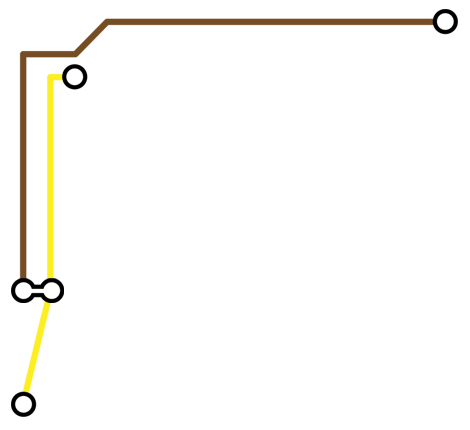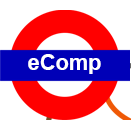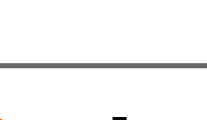Emerging from the Cocoon: How I Learned to Believe in (Well-Designed) Online Education through Pedagogical Apprenticeship
Introduction
When I started teaching college composition, I was uncertain about what role online education would play in my career as a teacher and a scholar. However, through the mentorship and experience I gained while serving as an IA in eComp during my M.A. program, I realized that online education would not only play an important role in my development as a teacher, but also as a researcher. Ultimately, working as an IA in eComp provided multiple avenues for professional development: by working side-by-side with an experienced online composition instructor, I developed new perspectives on online education as a site of increased access and equity; I borrowed strategies for my f2f teaching strategies; I contributed to the facilitation of a program-wide assessment; I was mentored in academic research and publication; and I forged new avenues for research.
Origins
My first encounter with online education occurred when many of my high school friends sought alternative routes to graduation, one path being online education. I noticed that the persistence among my friends enrolled in online classes was incredibly low; by the time I obtained high school equivalency, I realized that none of my friends who had opted for online classes had graduated. Additionally, while I was earning high school credit through a local community college, I struggled with online classes. Because I was a disengaged high school dropout, it was easy for me to log in to the learning management system (LMS) once or twice before letting the class slip away from my consciousness. The online learning environment felt impersonal; I didn’t feel personally engaged with my instructors or my classmates, so I would neglect the class, and ultimately fail. As a result of these experiences, I assumed, like many people, that online education was generally impersonal and ineffective.
However, I ultimately excelled in my undergraduate studies and went on to pursue a Master’s in Rhetoric and Writing at the University of New Mexico, where I was offered a position as a teaching assistant. From the moment I stepped into the classroom, I knew that I had found my life’s work. I took advantage of all of the teaching opportunities to which I had access, including team-teaching, mentorship duties in the writing program, and leadership responsibilities in a writing-related graduate student organization. However, due to my negative experiences with online education, I was hesitant to teach online.
My anxiety was alleviated when I was offered the opportunity to serve as an IA in eComp, which would allow me to test the waters, working in an online learning environment as an instructional assistant rather than as a lead instructor. As an enthusiastic, voracious new teacher, I was thrilled to become an IA, which offered me the opportunity to explore online learning environments and multimodal pedagogies while being mentored by an experienced instructor.
Experience
From the moment I entered the LMS, I realized that online education did not necessarily have to be cold and impersonal. Within the first three weeks, students had not only introduced themselves via discussion boards, but they had written biographies on the home pages of their e-portfolios. Through these texts, I got to know the students with whom I was working. I learned that they were not turning to online learning because it was easier or faster. The stereotype of online education as lazy college, college that allows you to stay in your pajamas all day, was simply untrue in this context. The majority of students in this course had very real life circumstances that prevented them from attending face-to-face classes on UNM’s campus. Most students had (or were expecting) children, had full-time jobs, lived outside of Albuquerque, or were on so-called “non-traditional” educational paths as returning and/or transfer students. These students not only inspired me due to their persistence in the face of adversity, but they also taught me how essential online education is to many individuals. I learned that online education, if planned and facilitated properly, is, to many students, an indispensable resource on the path to a college education. Our course was a resource for many of these students who, in previous eras, would not have had access to an education. I came to realize that eComp’s highly interactive curriculum was one method of ensuring that these students had a comparable experience to their on-campus counterparts. As an IA, I offered fifteen students increased contact with the teaching team by participating in message boards, responding to drafts, and offering individualized assistance through email and Skype.
Additionally, eComp was my first introduction to the concept of Universal Design for Learning (UDL). CCCC’s “A Position Statement of Principles and Example Effective Practices for Online Writing Instruction (OWI)” (2013) suggested that online learning environments should be hospitable to students with a wide range of abilities and learning styles. The position statement recommended that “the needs of learners with physical disabilities, learning disabilities, multilingual backgrounds, and learning challenges related to socioeconomic issues... must be addressed in an OWI environment to the maximum degree possible for the given institutional setting” (OWI Principle 1 section, para. 1). This echoes the main principle of UDL, which suggested that “a curriculum should include alternatives to make it accessible and appropriate for individuals with different backgrounds, learning styles, abilities, and disabilities in widely varied learning contexts” (Rose & Meyer, 2002, Introduction section, para. 2). In the context of composition pedagogy, Patricia Dunn & Kathleen Dunn de Mers (2002) stated that, “[u]niversal design helps us imagine writing pedagogies that tap into various people's talents in debate, dialogue, visualization, drawing, and movement—all of which can be used to invent, organize, and revise conventional texts” (Introduction section, para. 3). By working in an online environment designed around such principles, that offers learners multiple methods of obtaining, processing, and engaging with information, I was apprenticed in curriculum design principles that are essential to 21st century teacher training.
Because Dr. Andrew Bourelle was the instructor of record, I frequently communicated with him about curriculum, policies, pedagogy, and any problems that would arise. Since this was my second year of teaching, working alongside an experienced faculty mentor was essential to my development as a teacher and a scholar. While discussing the course with Dr. Bourelle, I was challenged to develop a new vocabulary for articulating my beliefs about the teaching of composition. Additionally, if I ran into a challenging situation—such as plagiarism, a miscommunication about assignment guidelines, or students’ life crises—I was able to discuss potential solutions with an experienced instructor. These conversations served as a reflective capstone to my M.A. teaching experience, reminding me not only of how much I had accomplished as a teacher and a scholar during the previous two years, but also of how much I had left to learn.
Destinations
Working in eComp helped me develop my teaching philosophy and gave me inspiration for my f2f teaching. After coaching students in eComp on their multimodal projects, I designed a project for my f2f curriculum that asked students to create a multimodal profile of their academic discourse community. Students’ responses were encouraging: many students viewed this project as more engaging, interesting, and relevant than other writing assignments, and their projects demonstrated this enthusiasm. Additionally, the multimodal theory and pedagogy that I learned while being apprenticed in eComp translated to the f2f context exceptionally well. For example, in response to the discourse community profile prompt, one student created an “object-argument” text (Shipka, 2011), in which she composed a text about the discourse community of nursing onto a set of scrubs. This interpretation of the multimodal component of the assignment would have been difficult to submit in an online class, but the student in the f2f class was able to use a textile canvas to advance her argument about the discourse of nursing.
This process contributed in my academic professional development in two significant ways. First, it gave me experience with conducting collaborative research and preparing its results for presentation in public venues such as conferences and journals. This is a skill that I, of course, will continue to use throughout my academic career. Additionally, it provided me with an engaging introduction to writing assessment. Writing assessment has always been central to composition studies (Yancey, 1999), but it is too often viewed negatively, as an impediment rather than an asset to teaching and learning (Huot, 2002). By allowing me to participate in a well-designed programmatic assessment as a new TA, eComp provided me with an introduction to assessment that inspired me to feel warmly toward it and include it in the repertoire of composition studies subfields in which I work.
Our programmatic assessment revealed, among other things, that students in eComp’s pilot classes were struggling with two of the writing program’s Student Learning Outcomes (SLOs) dealing with linguistic diversity. In response to that problem, I helped the eComp team design a new online curriculum that focused explicitly on language and linguistic diversity. We are currently assessing this course alongside the standard eComp curriculum, analyzing whether/how the measures we took helped students understand the value of linguistic diversity.
While serving as an IA in eComp, I had to make the difficult decision to leave UNM in order to pursue my Ph.D. at another institution. Although separating from my academic community was challenging, it helped me to know that my ongoing eComp research, on the programmatic assessment and the linguistic diversity-focused curriculum, would allow me to stay connected to UNM. Although I am not able to teach online at my current institution, my experiences working in eComp enabled me to 1) develop f2f approaches and reflect on my own teaching philosophy, 2) develop an interest in writing assessment, 3) gain experience with collaborative research and writing, 4) adjust my research agenda to include online as well as f2f learning environments, and 5) be prepared to teach and administer OWI courses and programs in my desired career as a WPA. As a result, the diversity of the student populations at the center of my teaching and research has been enhanced by the scholarly mentorship that I received through eComp.
Additionally, my experience in eComp has helped me develop expertise in online education that I am able to discuss with my new colleagues and mentors. For example, recently in a higher education class on curriculum design, a classmate made the (not uncommon) statement that online classes are less efficient than f2f classes. As a result of my experiences conducting collaborative research in eComp, I was able to respond with a well-developed literature review and results from original research suggesting instead that online classes are as efficient, if not more efficient, than f2f classes. Additionally, as I develop my doctoral research around the question of how writing knowledge transfers between extracurricular and academic learning environments, my expertise in online pedagogy has added an entirely new dimension to my research questions that I would not have encountered in my new institution, where there are no online composition courses.
Conclusion
In the age of for-profit online colleges, it would be naïve to say that online education is, without question, good, necessary, and beneficial for all students. However, what I learned through my apprenticeship in eComp is that by paying attention to the design of online learning environments and the training of online writing instructors (who are, in many cases, future faculty), we can harness the untapped potential of online learning environments to make education more equitable, accessible, and hospitable to a diverse group of first-year composition students.
Reflections in Online Writing Instruction:
Pathways to Professional Development
Pathways to Professional Development

Instructional Assistants: Novice
Author Bio























